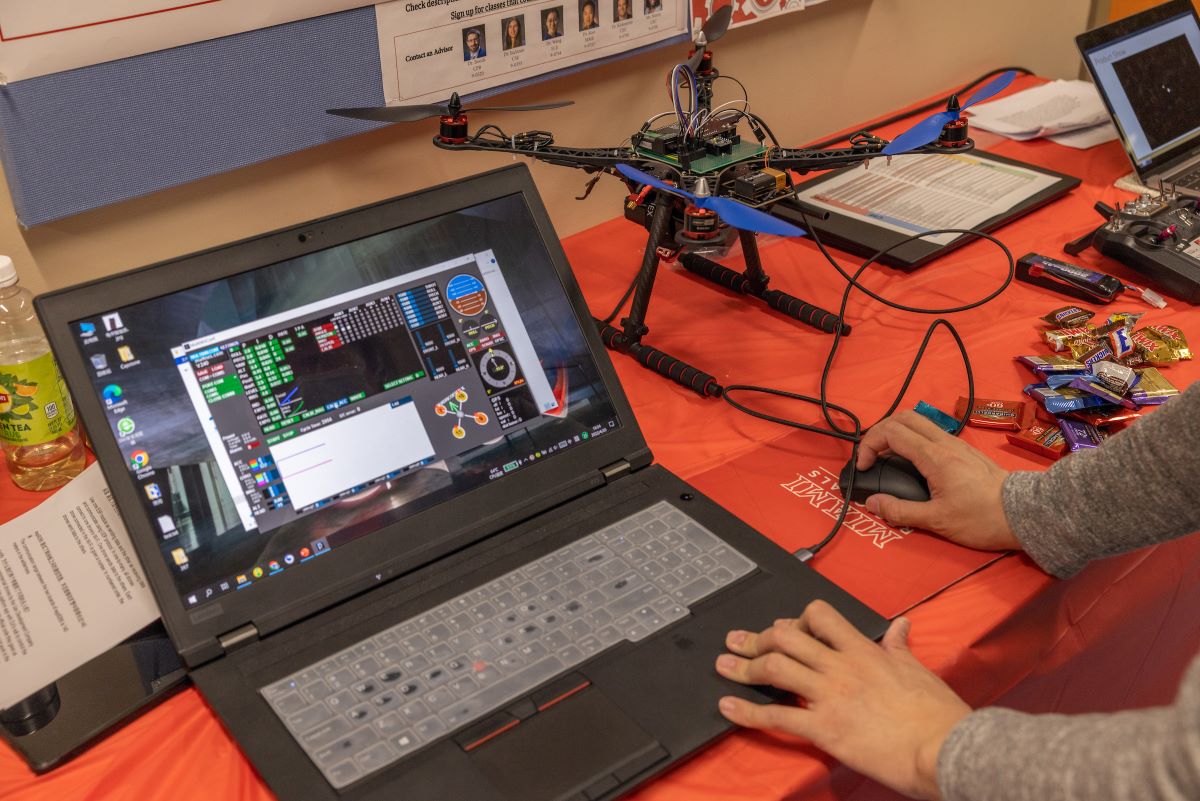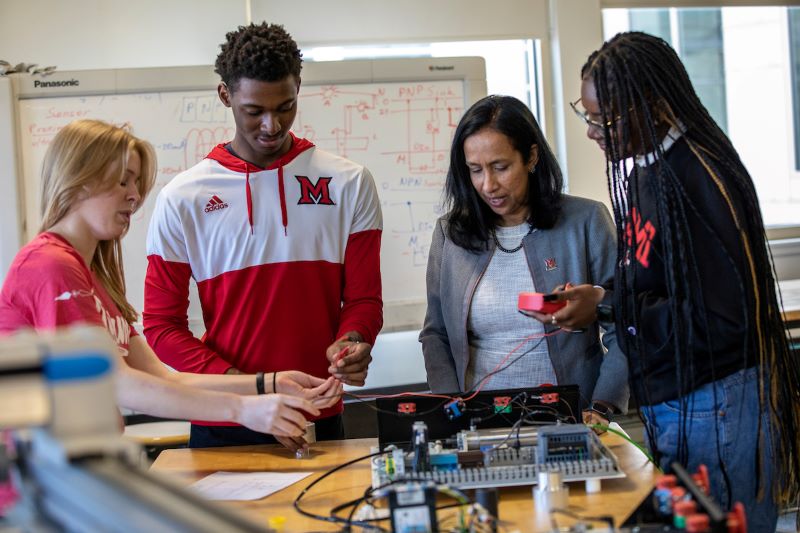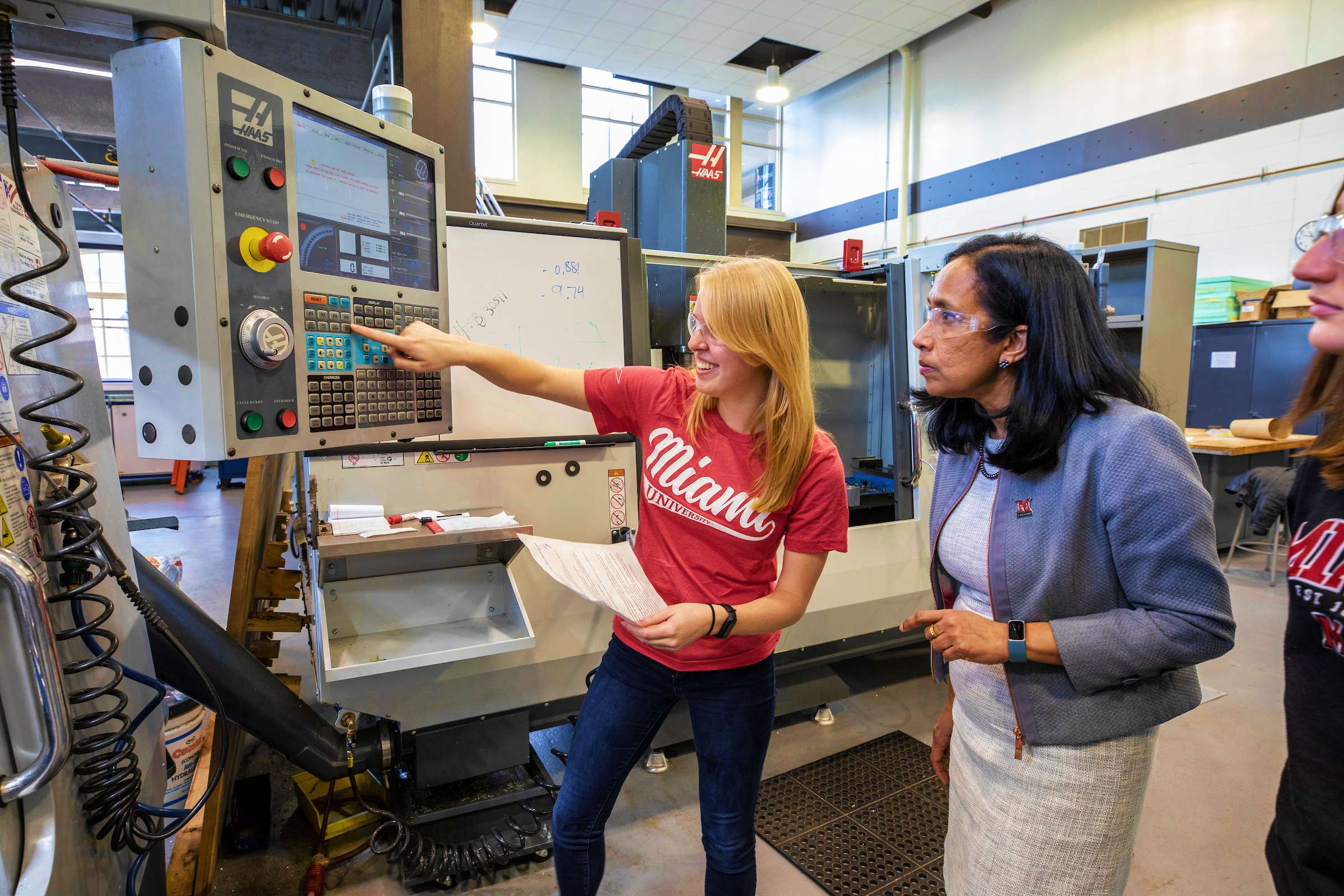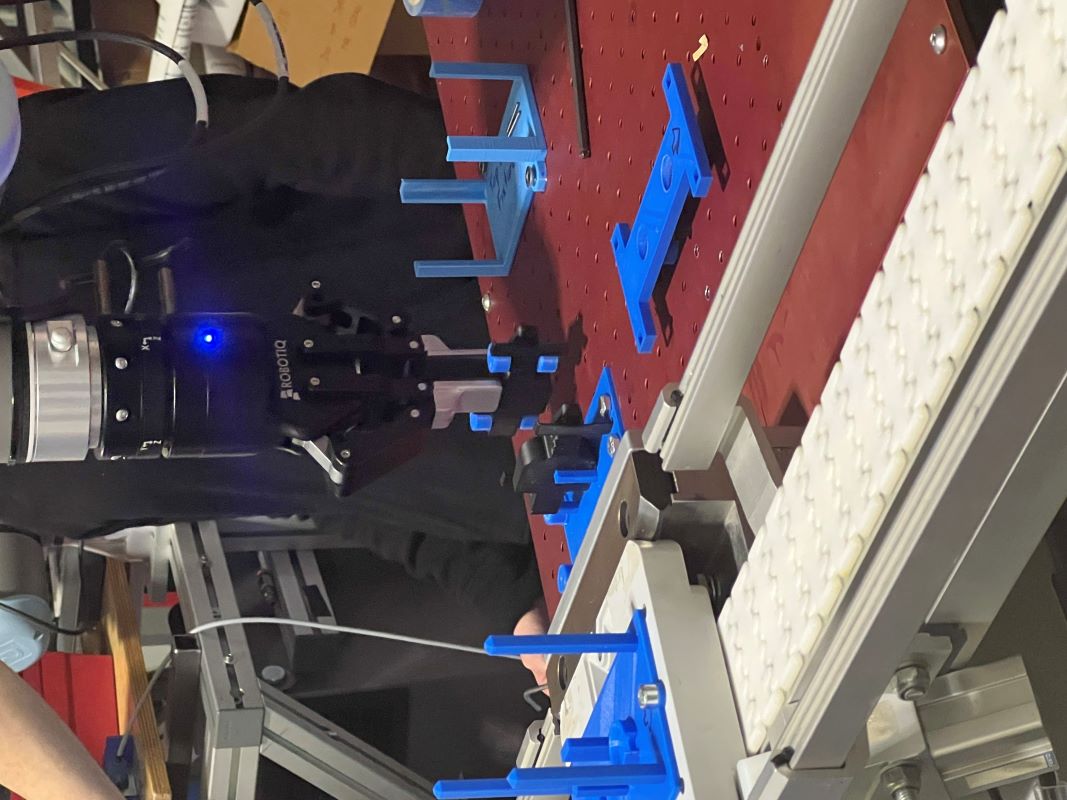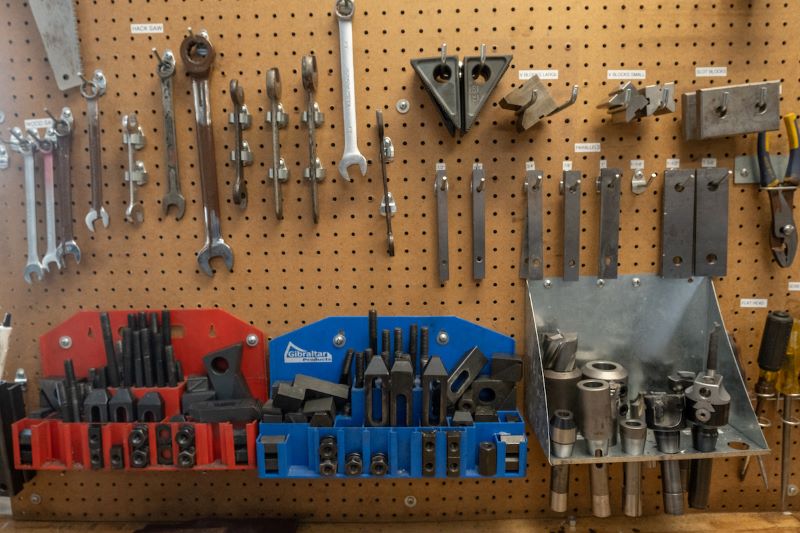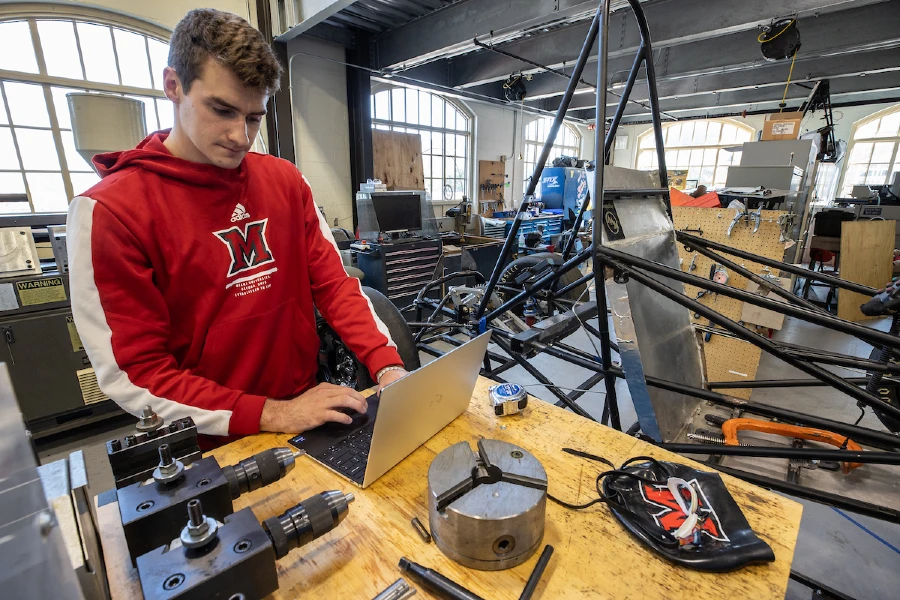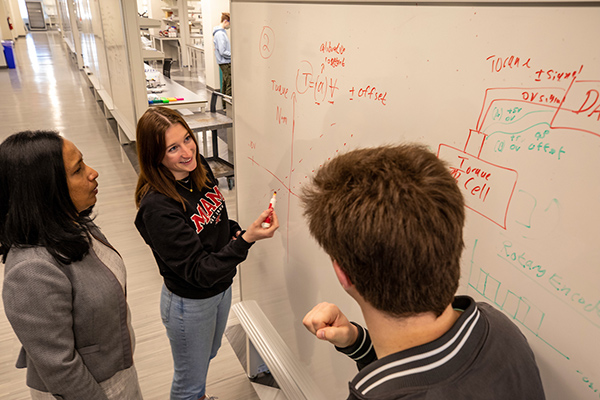Mechanical Engineering, B.S.
Mechanical Engineering focuses on the analysis and design of products, machines, and mechanical systems. Students learn to apply math and science, model and simulate performance, test how systems behave under real-world conditions, and integrate multiple elements to create optimal designs.
Graduates are prepared for careers in areas such as research, design, development, manufacturing, production, and technical sales, as well as for graduate study. Many work in manufacturing-related fields and product design, and seniors are encouraged to take the Fundamentals of Engineering exam, the first step toward professional engineering licensure.
This degree program is accredited by the Engineering Accreditation Commission of ABET, under the commission’s General Criteria and Program Criteria for Mechanical and Similarly Named Engineering Programs.
Learn More About the B.S. in Mechanical Engineering
Program Requirements
Learning Outcomes
More Accreditation Information
